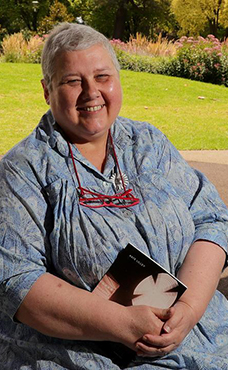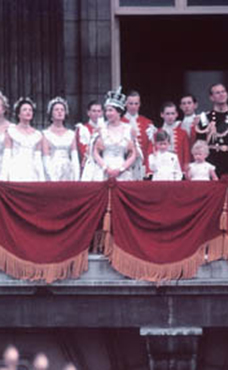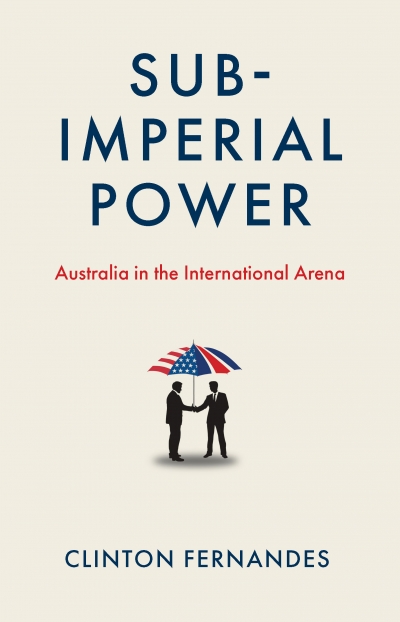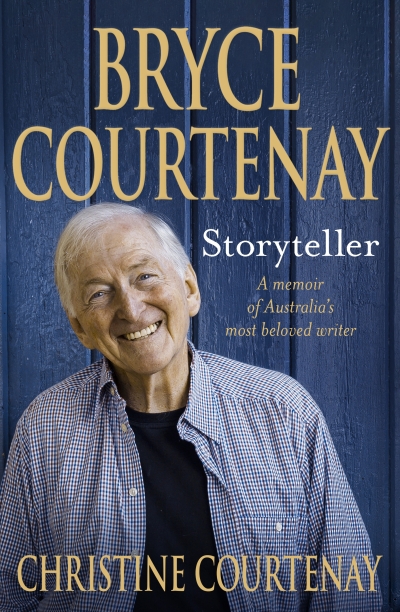Letters to the Editor - February 2012
Before Manning Clark
Dear Editor,
Norman Etherington’s lively review of Mark McKenna’s book on Manning Clark repeats the claim that Clark was ‘the first academic (in 1946) to offer a full-length course in Australian history’ (December 2011–January 2012). R.M. Crawford, the professor who appointed Clark to give the 1946 course, had himself done so in the previous year to twenty or so students, of whom I was one. I wonder whether Clark, whom I did not know at that time, since he was then attached to the Politics and History department, might also have been present, taking notes and garnering ideas. Certainly Crawford, whose main interest was in European history and the theory and philosophy of history, only gave an Australian course for the one year, but he did so before Clark took it over. In 1952, Crawford published a short history of Australia, no doubt drawing on Clark’s, as well as his own lectures. And before Crawford, his predecessor as Professor of History at Melbourne, Ernest Scott, had for many years given comparable courses.
Crawford also ‘engaged with Asia’ before Clark ever did so, through his school textbook, Ourselves and the Pacific, first published in 1941. This was a standard text for Year TenHistory students in Victoria for over twenty years, and included substantial sections dealing with China and Japan. It certainly told the thousands of students (and hundreds of teachers) who studied it that Australia could not continue to be ‘a distant appendage of Britain’, well before Clark may have begun to do so.
Finally, I think Etherington is too glib in dismissing as ‘daft’ Clark’s premise that ‘modern Australia was forged in the conflict between Catholicism, Protestantism, and the Enlightenment’. Clark may not have sustained that premise very consistently throughout his six volumes, but given the protracted debates over state aid to the churches and their schools, plus the general process of secularisation of both state and society that was going on throughout the nineteenth century, it seems to me a potentially fruitful approach to the study of Australian history and indeed of our current condition, given the pressures the Enlightenment and its values seem to be under these days.
Etherington’s review certainly prompts me to read McKenna’s book, but it does seem in places to foster the myth (which Manning would no doubt join in promoting) that Clark was the first academic historian to approach the history of Australia in a challenging way.
J.S. Gregory, Balwyn, Vic.
Exonerating Clark
Dear Editor,
Norman Etherington’s review of Mark McKenna’s life of Manning Clark is a perceptive response to an outstanding biography. It has to be corrected on one point, though. The review suggests, to Clark’s detriment, that ‘McKenna’s bibliography of Clark’s publications lists not a single journal article’. But the alleged failure ever to produce a serious scholarly article does not stand up to scrutiny. In 1956 the learned journal Historical Studies published, in two parts, an important article by Clark on the origins of the convicts transported to eastern Australia. It was a tour de force. Clark ticked off other historians and delved into original source material to defend a lively hypothesis (that the convicts were not innocent victims of a harsh penal system; most were hardened products of an urban criminal underclass).
In this instance, the deficiency is with the bibliography, not with Clark. Surely he had enough faults to make the fabrication of an extra one unnecessary?
Stephen Holt, Macquarie, ACT
A creature of his time
Dear Editor,
Norman Etherington would have it that Manning Clark’s ‘premise that modern Australia was forged in the crucible of conflict between Catholicism, Protestantism, and the Enlightenment seems just daft’. But this is not just what Clark thought; it was a truism of his and previous generations. Indeed, the European sweep over Australia was carried out by the British, who brought with them their nations’ own special religious and philosophical problems. At the vicarage dinner table and in the classrooms of Melbourne Grammar School, this was the world view being expressed right up to the 1960s, and is central to an understanding of our people’s life, motives, and outlook.
Surely the real issue here is not that Clark worked from such a premise, but that he didn’t question it. His premise is not daft; it shows he was a creature of his time, like all historians. From my reading, it is only late in his life that Clark discovered women, multiculturalism, and an Indigenous reality, mainly through listening to his colleagues. The world did not begin in 1788, and Clark’s premise will be revisited and retested by younger historians. It is, even as we speak.
Philip Harvey, Macleod, Vic.
Norman Etherington replies:
Pity the poor reviewer who must rely on the biography for information. I took Mark McKenna’s bibliography and statement about the Australian history course at face value. I neither wrote nor implied that Manning Clark was the first to promote engagement with Asia as an important theme in Australian history. Several precursors could be mentioned in this regard, including the Adelaide historians G.C. Henderson, W.K. Hancock, and Jerry Portus.
It goes without saying that Catholics, Protestants, and rational thinkers figure prominently in the nation’s history. But they are historical presences, not historical forces. To lump together the fissiparous Protestants – high, low, and broad church Anglicans, plus all the dissenters – and imagine them an undifferentiated ‘ism’ somehow engaged in shaping the collective psyche still strikes me as daft.
Emma Kowal replies to Diane Austin-Broos
Diane Austin-Broos’s response to my review of her book A Different Inequality: The Politics of Debate about Remote Aboriginal Australia (November 2011) confirms her affinity with the group she calls the ‘anti-separatists’ (Letters, December 2011–January 2012). My concern is not that Western education and mainstream employment are ‘neo-liberal’, but that Austin-Broos’s emphasis on the role of ‘public opinion’ in achieving these goals elides rather than solves the central dilemmas of Indigenous affairs.
Public opinion represents ‘an obvious alternative to policing and heavy-handed governance’ only where such opinion is present. Clearly, public opinion regarding the importance of school attendance and sustained employment is not effectively driving change in many remote communities. Is this a function of cultural difference to be respected or disadvantage to be remedied?
Austin-Broos describes well the reproduction of disadvantage through Aboriginal cultural forms that make this question very difficult to answer. In such contexts of ‘social dysfunction’, how can an internal agenda for change be fostered? Should we wait for public opinion to drive the change we want to see, and accept if it fails to materialise (i.e. respecting difference) or is externally driven action to address social dysfunction and alter social norms required (i.e. disadvantage to be remedied)? What if the most powerful people in communities are most likely to oppose change, as they benefit from the status quo? Austin-Broos sidesteps these questions in advocating for ‘Aboriginal people determining their own paths’.
She is not alone in this. My research with non-Indigenous Australians who work in Indigenous affairs shows that a desire for Indigenous people to change themselves without outside intervention is characteristic of progressive Australians who care about Aboriginal disadvantage. These aversions among white anti-racists stem from a desire to avoid inflicting further harm on Indigenous people. However, policy makers do not have the luxury of avoiding the dilemmas of Indigenous affairs. While Austin-Broos claims that I fail to see the ideas underlying policy, my concern is that her position is of little use to policy-makers.
Emma Kowal, Melbourne, Vic.
Not the last word
Dear Editor,
Rachel Buchanan’s essay ‘“Sweeping up the ashes”: The Politics of Collecting Personal Papers’ (December 2011–January 2012) made fascinating reading, with its emphasis on the importance of archives and on the constant search for material that throws light on the creative process. But there is one point on which I must disagree. Buchanan’s essay seems to suggest that the archive record should be the ‘last word’ on the subject.
Much depends on the subject, but in my experience the official archival record can be anything but the final word (here I note that the British Foreign Office vets most of its material before it is sent to the Public Record Office). In my own case, while researching a book on my father, Robert Frederick Bird Wake, who worked for state security during the 1930s, 1940s, and 1950s, I found evidence of the record’s having been manipulated to suit the priorities of the state/federal departments involved.
Some evidence was misconstrued. For example, in my father’s personal ASIO files there were pictures of my father visiting the Communist Party of Australia (CPA) offices in Market Street, Sydney. These pictures were taken during ASIO surveillance of those offices, after my father was forced to retire from ASIO. ASIO saw these pictures as evidence of my father’s dealings with the CPA. What they really showed was my father visiting the CPA bookshop. Since the early 1940s my father had made it a practice to gather as much material as he could find about the CPA. He believed that by reading CPA literature he could find out more about communist policy, methods, and objectives. By being better informed, my father believed, he would be better able to protect the Commonwealth from its secret enemies. However, ASIO was working with another agenda. They wanted to make my father look like a suspect character, largely because of his association with H.V. Evatt.
ASIO’s version of my father’s activities was recently picked up in Peter Butt’s documentary I, Spry (2010). The irony of this documentary is that, while it reached the conclusion that Spry was a flawed spymaster, it still insisted that my father was a man of suspect loyalties, whereas in fact my father seriously doubted if Spry was the right man for the job. Not much of this is going to be revealed in the official record. This is why researchers should not accept the archive record as holy writ.
Even when it comes to the creative process, I doubt that authors fully understand the forces that move them. What is written down is only part of the story. Finding out what really happened, and why, takes time and effort and a curious suspension of belief. In my experience, too many researchers have an agenda in mind before they start.
Val Wake, Port Macquarie, NSW





Leave a comment
If you are an ABR subscriber, you will need to sign in to post a comment.
If you have forgotten your sign in details, or if you receive an error message when trying to submit your comment, please email your comment (and the name of the article to which it relates) to ABR Comments. We will review your comment and, subject to approval, we will post it under your name.
Please note that all comments must be approved by ABR and comply with our Terms & Conditions.